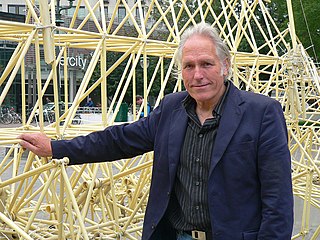A Quote by Nicolas Cage
I'm a seeker. I'm very much a believer in science. But I do think there are times when science and mysticism intersect.
Related Quotes
I can think of very few science books I've read that I've called useful. What they've been is wonderful. They've actually made me feel that the world around me is a much fuller, much more wonderful, much more awesome place than I ever realized it was. That has been, for me, the wonder of science. That's why science fiction retains its compelling fascination for people. That's why the move of science fiction into biology is so intriguing. I think that science has got a wonderful story to tell.
I wanted to be a scientist. My undergraduate degree is in biology, and I really did think I might go off and be some kind of a lady Darwin someplace. It turned out that I'm really awful at science and that I have no gift for actually doing science myself. But I'm very interested in others who practice science and in the stories of science.
When people think science and cooking, they have no idea that it's not correctly expressed. We're actually applying the scientific method. People think chemistry and physics are science, but the scientific method is something else.... It's the science that the world of cooking generates: science of butter; science of the croissant.
I very much was inspired by Bill Bryson. He does cover science, but more often, it's a mixture of science and travel, and whatever he happens to be writing about - Shakespeare, Australia, the United Kingdom, or when he covers science in 'A Short History Of Nearly Everything' - he has an incredible ability to be both entertaining and enlightening.
I liked science very much. A science teacher in high school inspired me, and because of him, I began studying science at the university. But when I got there... well, the subject still attracted me a lot, but I had to do all these exams, and it was just like working in an office. I couldn't stand that.



































